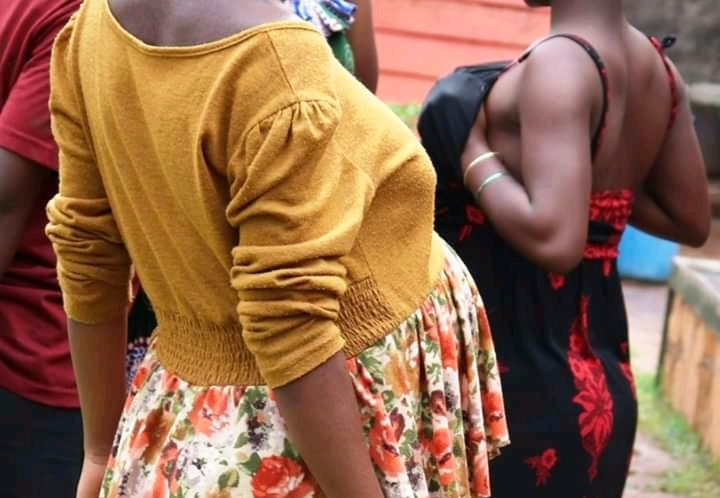
JOHN SEMAKULA reports on the rise in teenage preganancies in Uganda during coronavirus lockdowns – and how Christian organisations are helping the young mothers…
Mukono District, Uganda
Ordinarily, Sheila* would now be two months away from her first national examinations, usually conducted in the first weeks of November. Thanks to the emergence of the COVID-19 pandemic, however, that may not be the case for the 14-year-old this year. Schools in Uganda have remained shut since a lockdown on them was instituted on 20th March.
But the COVID-19 lockdown is not the only challenge that Sheila is battling with. As a result of the lockdown, Sheila’s mother sent her to live with her grandfather in order for her to concentrate on her books. Sheila says she did not get the concentration she desired at her grandfather’s home. Instead, he defiled her. And she is now pregnant.
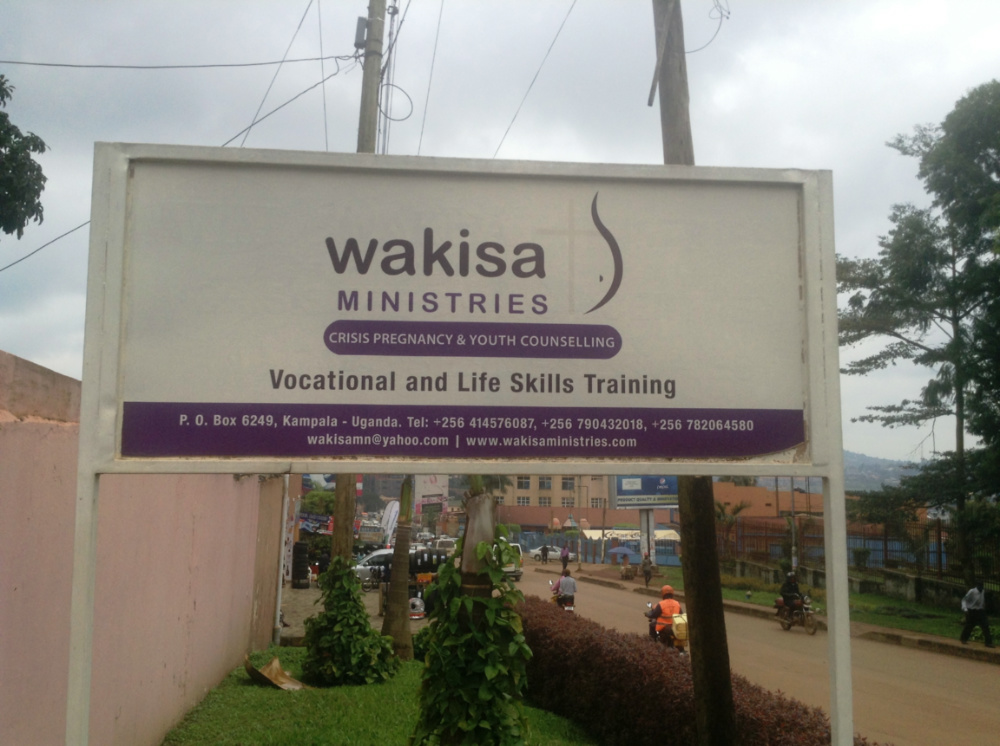
The Wakisa Ministries signboard in Kampala. PICTURE: Wakisa Ministries.
Sheila says whenever her grandmother was away from home, her grandfather demanded sex.He warned her never to tell anyone what was happening – and that if ever she did, harm awaited her.
But Sheila was brave enough to approach the local authorities, where she reported the matter. Her mother, too, got to know. Sheila’s mother was angry, but felt helpless. This was, after all, her father.
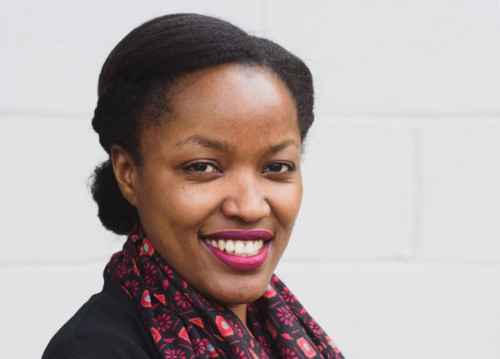
Ruth Gambu. PICTURE: Courtesy of Wakisa Ministries.
“It is encouraging to see the young mothers who join with a lot of trauma leaving as a changed generation with lessons learnt. They leave knowing how to mother and ready to teach their communities.”
– Ruth Gambu, manager of a care home run by Wakisa Ministries.
The local council authorities who helped Sheila to leave her grandfather’s home and relocate to Wakisa Ministries, a charity based in Uganda’s capital, Kampala, where she currently lives.
When she arrived at the organisation’s premises, Sheila says she felt disgusted and traumatised. However, while there, she discovered that she was not alone in the journey of teenage pregnancy. She met 26 other teenagers, who had been impregnated under the cover of the lockdown.
At the care home, the teenage mothers are made to witness God’s blessings, as the organisation’s name, Wakisa, suggests. They are provided with counselling and care services as well as opportunities for Christian growth and discipleship and the chance to learn vocational skills.
Sheila says the services she has received have helped to restore the hope she had lost.
The care home’s manager, Ruth Gambu, tells Sight that the counselling accorded to the teen mothers ensures that, by the time they leave to reunite with their families, they have fully recovered, accepted their situation and are ready to take care of their babies.
“It is encouraging to see the young mothers who join with a lot of trauma leaving as a changed generation with lessons learnt. They leave knowing how to mother and ready to teach their communities,” she says.
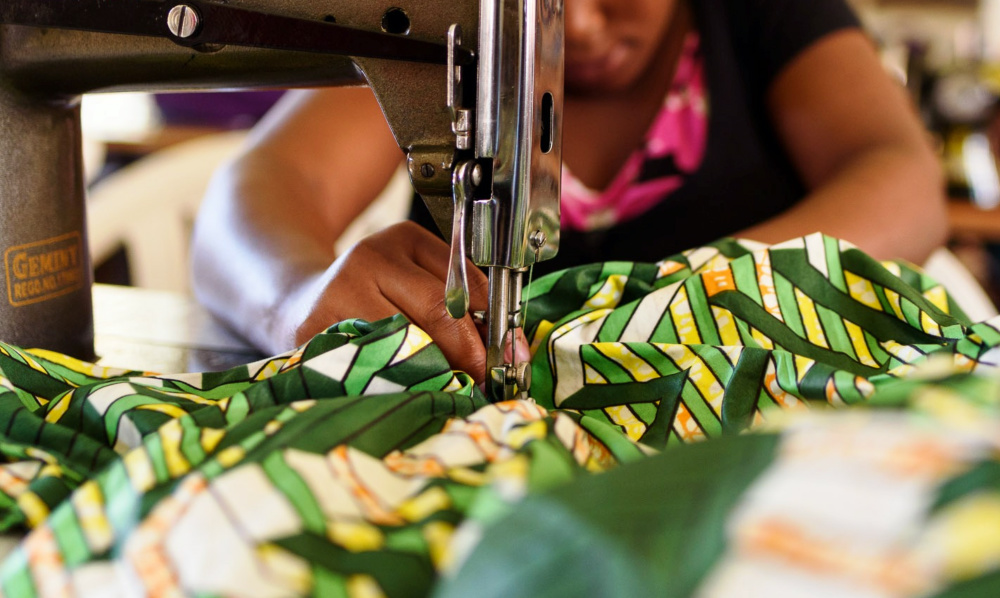
Teaching young mothers vocational skills is part of what is offered at Wakisa Ministries. PICTURE: Wakisa Ministries.
Gambu is, however, worried about the rise in incest among the teenage mothers.
Of the five pregnant teenage mothers admitted in August, three were incest-related cases, Gambu reveals.
“Due to the lockdown, families stayed in-house for long hours. And what happens if you put people in small places and they are not going anywhere?” she says.
Between March and July, the charity also registered another 10 cases of incest. In Uganda, incest is a criminal offence and can see offenders jailed for seven years.
Jane Katusiime, the charity’s counsellor, blames the rising cases of incest and teenage pregnancies on the insatiable love for money among girls and the lack of awareness about the dangers of pre-marital sex.
“The love for money lures young girls into sexual intercourse, with old men who give them small gifts, such as perfumes, airtime or food,” Katusiime noted.
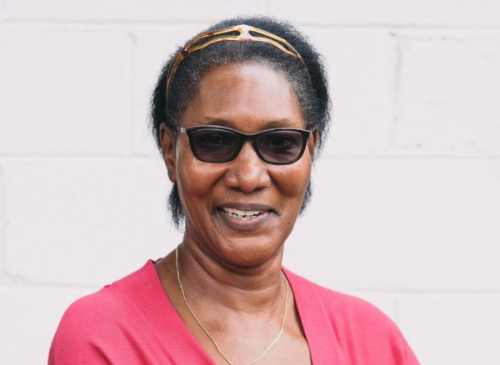
Vivian Kityo, executive director of Wakisa Ministries. PICTURE: Courtesy of Wakisa Ministries.
“Let’s tell them how God has created us…Until we begin to open up to our children about sexuality, the problem of teen mothers is here to stay.”
– Vivian Kityo, executive director of Wakisa Ministries.
Wakisa Ministries’ executive director Vivian Kityo believes that the surging cases of teenage pregnancies is due to the fact that parents have abandoned their responsibility to educate children about sex, noting that many parents leave the responsibility of talking to their children about sexuality to the teachers.
“To end the trend of teen mothers, parents should have an open communication line with their daughters,” said Kityo, who founded Wakisa Ministries 15-years-ago, after a teenage girl who carried out an abortion died in her hands at Nsambya Hospital in Kampala where she was working as a nurse.
“Let’s tell them how God has created us…Until we begin to open up to our children about sexuality, the problem of teen mothers is here to stay.”
The increasing number of teenage pregnancies during the coronavirus lockdown has put a strain on the resources of NGOs looking to provide care for the girls.
The Remnant Generation, another charity working in the sector, recently posted a message on its Facebook wall, appealing for support to rescue two teenage mothers, whose lives were in danger.
Annabella Nakabiri, The Remnant Generation’s executive director, says the organisation has been overwhelmed by the rate of sexual abuse of children during the lockdown.
“As I type this, our rescue team has come in with an urgent need, two desperate teen mothers [a 15-year-old and a 14-year-old] and it’s a matter of saving lives,” Nakabiri writes, adding: “We are overstretched, but we must save lives.”
She is appealing for donations to obtain baby’s clothes and other requirements for the two young mothers, to help them in their time of need.

Pregnant teenage girls being looked after by the Remnant Generation. PICTURE: Courtesy of the Remnant Generation.
The issue of rising teenage pregnancies is not confined to Kampala alone. In the Bidibidi Refugee Settlement in northern Uganda, World Vision Uganda – an evangelical Christian humanitarian aid, development and advocacy organisation, is also grappling with the issue during the COVID-19 lockdown season.
The settlement is home to more than 230,000 Sudanese refugees and, according to the World Vision’s child protection department, between March and June they registered 19 cases of teenage pregnancies, six child marriages, two forced marriages and four child-to-child sex cases.
Sylvia Namono, World Vision Uganda’s child protection facilitator at Bidibidi, says teenage pregnancies are common but that many parents conceal information from the police and partners working in child protection.
“Most parents fear to open up or report these cases. This ends up affecting the girl child negatively. Many times they drop out of school, and some end up as single mothers who head families.”
The organisation is providing the teenage mothers with psycho-social counselling, medical and material support, such as maternity clothes and soap during pregnancy and after delivery.
Another NGO, Art for Children Uganda, also reported a massive 2,372 cases of teenage pregnancies during the lockdown in the districts of Kitgum, Ngora, Kyegegwa, Kasese and Lyantonde. The NGO, which is committed to lifting the voice of all children through creative means, especially art, notes that the figures had only added to the 98 million adolescent girls who were out of school before the COVID-19 outbreak.
Those working to help teenage mothers say the closing of schools due to the coronavirus pandemic has been a key factor in the upswing in teenage pregnancies.
That fact has led stakeholders in the country’s education sector to ask the government to consider reopening of schools to avert the situation. It’s a call which has the support of the Uganda National Teachers Union, an umbrella body of teachers in the country, which has warned that if nothing is done to reverse the situation, many learners may not return to school after being impregnated and then married off during the lockdown.
Global organisations, the World Health Organisation and United Nations Children’s Fund, UNICEF, have also urged African governments to promote the safe reopening of schools during the coronavirus pandemic, partly in order to to reduce teenage pregancies but also to reduce the chances of students being exposed to poor nutrition and violence during the extended stay-at-home periods.
While much of the recent focus in tackling under-aged pregnancies has been on school closures caused by the COVID-19 pandemic, poverty continues to remain an underlying issue.
Wakisa’s Ruth Gambu says the COVID-19 pandemic has increased gaps between the rich and poor and made girls even more vulnerable than they already were.
“Girls are looking for scholastic materials; they need to get toiletries,” she explains. “Everyone is preying on the other. Everybody is a victim. The school girl wants pads. The man who wants to prey on her says you want pads? This is how you will pay for them. Girls also need internet to access education services. The injustice of poverty is growing at the lower levels…so much.”
* Sheila’s name has been changed to protect her privacy.





